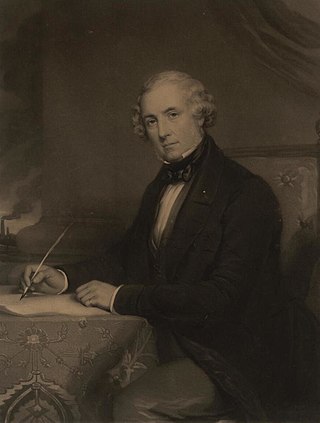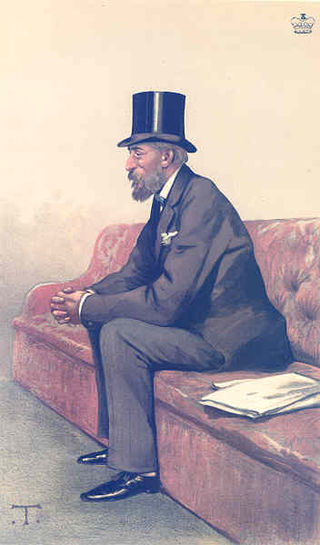
Lucy Douglas "C.Z." Guest was an American actress, author, columnist, horsewoman, fashion designer, and socialite who achieved a degree of fame as a fashion icon. She was frequently seen wearing elegant designs by designers like Mainbocher. Her unfussy, clean-cut style was seen as typically American, and she was named to the International Best Dressed Hall of Fame List in 1959.

Sir Josiah John Guest, 1st Baronet, known as John Josiah Guest, was a British engineer, entrepreneur and politician.

Viscount Wimborne, of Canford Magna in the County of Dorset, is a title in the Peerage of the United Kingdom.

Ivor Bertie Guest, 1st Baron Wimborne, 2nd Baronet, DL was a British industrialist and a member of the prominent Guest family.

Ivor Churchill Guest, 1st Viscount Wimborne, KP, PC, known as Lord Ashby St Ledgers from 1910 to 1914 and as Lord Wimborne from 1914 to 1918, was a British politician and one of the last Lords Lieutenant of Ireland, serving in that position at the time of the Easter Rising.
Ivor is an English masculine given name derived either directly from the Norse Ívarr, or from Welsh, Irish, or Scottish, all of which likely derive it also from the original Norse form. The Norse name is derived from the Old Norse elements ýr and herr : hence, 'archer, bow warrior'. It is possible the old Norse name Ívarr comes from the Celtic root and may be related to the Celtic root of -iv which is found in St. Ives for example, itself possibly referring to yew. This could indicate an earlier shared language origin; potentially through Indo-European, previous contact or another source.
Peter Albert Michael Haden-Guest, 4th Baron Haden-Guest was a British United Nations diplomat and member of the House of Lords. A dancer and choreographer who performed as Peter Michael with the Markova-Dolin Ballet, Ballet Divertissement, Ballet Theatre, Ballet Joos, and the Repertory Dance Theatre from 1935 until 1945, Haden-Guest was a United Nations official from 1946 to 1972. He inherited his title in 1987.
This article is about the particular significance of the year 1835 to Wales and its people.

The Guest family is a British family that has been prominent in business and politics since the 18th century. It was involved in the British iron and steel industry, particularly the Dowlais Ironworks in Wales, which later became part of Guest, Keen and Nettlefolds. Hereditary titles held by members of the family include Baron Wimborne, Baron Ashby St Ledgers, and Viscount Wimborne, all in the Peerage of the United Kingdom.

Oscar Montague Guest was a politician in the United Kingdom, initially with the Liberal Party and later as a Conservative. He was twice elected as a Member of Parliament (MP).

Dowlais is a village and community of the county borough of Merthyr Tydfil, in Wales. At the 2011 census the electoral ward had a population of 6,926, The population of the Community being 4,270 at the 2011 census having excluded Pant. Dowlais is notable within Wales and Britain for its historic association with ironworking; once employing, through the Dowlais Iron Company, over 7,000 people, the works being the largest in the world at one stage.

Montague John Guest, was a British Liberal politician.
Ivor Grosvenor Guest, 2nd Viscount Wimborne, was a British politician.

Arthur Edward Guest, was a British Conservative politician.
Blount is a common surname of English derivation, meaning "blonde, fair", or dull
Fortescue is an English surname that originated from the old Norman epithet Fort-Escu. People with the surname include:

Bourke is an Anglo-Norman Irish surname, a variant of the surname Burke, deriving from the ancient Anglo-Norman and Hiberno-Norman noble dynasty, the House of Burgh. In Ireland, the descendants of William de Burgh (c.1160–1206) had the surname de Burgh which was gaelicised in Irish as de Búrca and over the centuries became Búrc then Burke and Bourke.
Haden is both a surname and a given name. Notable people with the name include:
Pitt is a surname of English origin.










